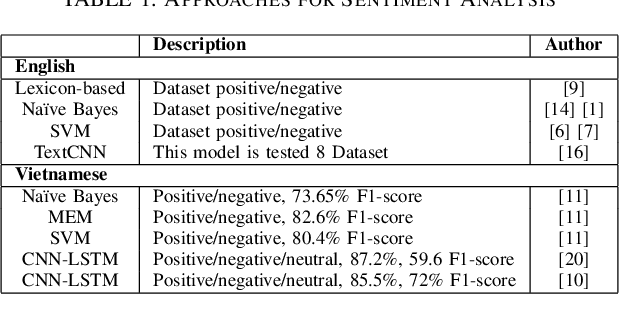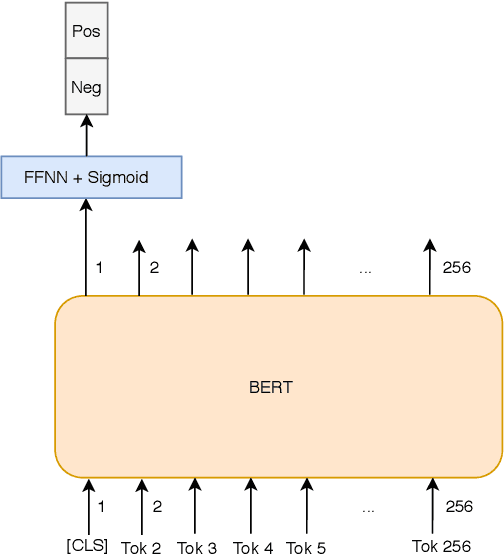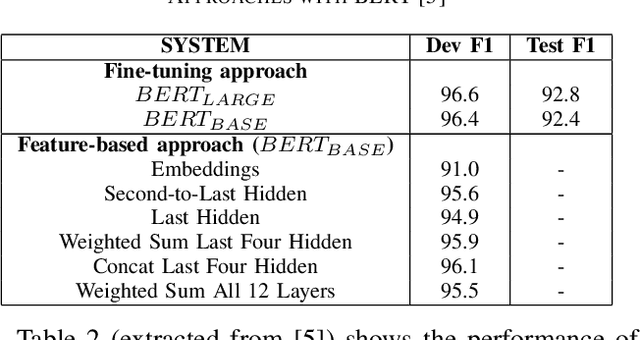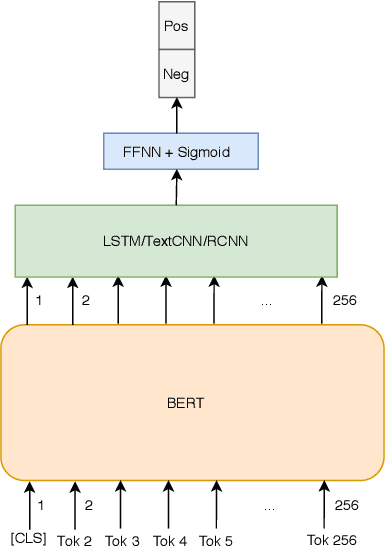Quoc Thai Nguyen
Fine-Tuning BERT for Sentiment Analysis of Vietnamese Reviews
Nov 20, 2020



Abstract:Sentiment analysis is an important task in the field ofNature Language Processing (NLP), in which users' feedbackdata on a specific issue are evaluated and analyzed. Manydeep learning models have been proposed to tackle this task, including the recently-introduced Bidirectional Encoder Rep-resentations from Transformers (BERT) model. In this paper,we experiment with two BERT fine-tuning methods for thesentiment analysis task on datasets of Vietnamese reviews: 1) a method that uses only the [CLS] token as the input for anattached feed-forward neural network, and 2) another methodin which all BERT output vectors are used as the input forclassification. Experimental results on two datasets show thatmodels using BERT slightly outperform other models usingGloVe and FastText. Also, regarding the datasets employed inthis study, our proposed BERT fine-tuning method produces amodel with better performance than the original BERT fine-tuning method.
 Add to Chrome
Add to Chrome Add to Firefox
Add to Firefox Add to Edge
Add to Edge